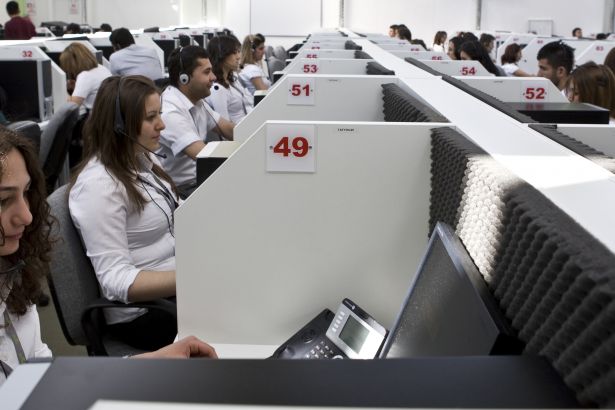Turks work longest hours among OECD members

Turkey is the top country with the highest proportion of employees working very long hours among the OECD countries, with a population working 60 or over 60 hours per week.
Followed by Colombia and Costa Rica, Turkey is the top OECD country as 20,9 per cent of its population works 60 or over 60 hours weekly in proportion to the total employment according to data from the year of 2016.
According to the OECD data showing the total registered employees (including part-time and full-time labour force), Turkey leads the other countries in weekly working hours in all the researches related to ages and years.
Turkey’s weekly working hour is 46,5 on total employment average, surpassing all the other countries according to 2017 data, while it is followed by Colombia, Costa Rica and South Africa.
Considering that Turkey’s labour law sets the maximum working hours per week as 45 hours, the current data demonstrate that a 20,9 per cent of the workers are forced to overwork unlawfully. Since the labour law conditions equal daily working hours in a week, every worker should work 7,5 hours a day at the workplaces running six days a week.
The OECD data show that the worldwide average is 5,1 with regards to the employees working 60 or over 60 hours per week, while Turkey grossly exceeds the average with 20,9 per cent. Moreover, it should be noted that the OECD data include the formal employment, however, particularly the young population in Turkey is largely employed as temporary workers within informal sectors with high circulations.
INFORMAL SECTOR AND ‘FLEXIBLE’ WORKING
As the OECD data show that the weekly working hours of part-time workers at the age of 15-24 is 19,1 on average, the current conditions in Turkey demonstrate a quite different situation.
Considering that informal and “flexible” employment has further increased and deepened exploitation in Turkey in recent years, university students are largely employed in service sector with such severe conditions as young labour is mostly employed at bar/café sector.
As purchasing power has diminished while many sectors have remained out of official inspections following the 2008 global crisis, young workers are informally employed in many fields or they are forced to self-employment due to financial challenges.
FROM BARTENDERS TO CONSTRUCTION WORKERS, FROM TRANSLATORS TO BABY-SITTERS
Young workers in Turkey are largely employed as bartenders and waiters at bars and cafés. Forced to work without any certain job definitions, young employees work by hourly rates without any record or inspection. Some young workers are forced to carry out whitewashing at many workplaces, while they are largely paid without any record or statistical data.
It is widely known that unemployed young population is usually employed as construction workers, particularly in Turkey’s big cities. Some others who study foreign languages work as “freelance” translators as they seek for translation texts via various networks, again without any professional standard or inspection.
Babysitting has also become a widespread working field in Turkey, as particularly female university students have to work as babysitters to meet their financial needs. Some parents look for female university students for their kids via social media applications and the Internet, showing that yet another unrecorded sector has emerged in the country.
The OECD data do not indicate to any certain working hours per day in the employment of part-time working young population. On the other hand, although Turkey’s labour law conditions maximum 7,5 hours a day and at least a 1-hour lunch break in formal sectors, most of the workers are deprived of break times.
Young workers are forced to work for very long “shifts” in informal sectors. Particularly bar/café workers have to work nonstop for 10-12 hours for a shift time. Enjoying the lack of official inspections, bosses do not allow 1-hour break times at many workplaces.
Although the weekly working hours are around 50 hours in total formal employment according to the OECD data, that’s just the tip of the iceberg considering the severe exploitative conditions and informal working conditions.



